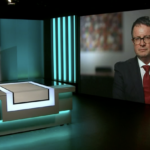Dr Pradeep Philip’s review of Medicare integrity blames complexity for non-compliance and proposes real-time claim-checking software as one fix.
There was considerable emphasis placed on deliberate and premeditated fraud in last year’s Medicare media storm. The real problem is far less glamorous.
Deloitte economist Dr Pradeep Philip couldn’t substantiate the widely publicised claim that $8 billion goes missing from Medicare annually, but he didn’t rubbish the idea completely.
His more conservative estimate of $1.5-$3 billion in leakage per year is much closer to previous estimates by the Australian National Audit Office.
However, he found that if systemic issues were not addressed, it is “entirely feasible” that the value of non-compliance will one day be to the tune of $8 billion.
What wasn’t found
What should be reassuring to GPs, though, is that Dr Philip dismisses the notion that doctors were intentionally ripping off the taxpayer on a large scale.
“At present, it is my view that a significant part of the leakage in the Medicare payment system stems from noncompliance errors rather than premeditated fraud,” he said.
“Indeed, one could argue that there is a significant amount of ‘fear’ of the compliance regime, notwithstanding it is not as far reaching or effective as it could or should be in practice.”
Dr Philip also credited the success and efficacy of Australia’s health system to the altruistic behaviour of health professionals.
The review itself was prompted by reporting in Nine Newspapers toward the end of last year which featured a claim from lawyer Dr Margaret Faux that $8 billion of Medicare’s annual funding went to waste each year.
While the media reports acknowledged that the missing money was likely disappearing through a combination of deliberate fraud, unintentional non-compliance and low-value care, much of the focus was placed on deliberate rorts.
The release of the Philip report means that the evil-doctor narrative can finally be put to bed, according to RACGP president Dr Nicole Higgins.
“[The Nine newspapers] investigation with Dr Margaret Faux’s unsubstantiated claims have not been supported by this report,” she said.
“We also reject the assertion that Medicare is loosely scrutinised.
“GPs are subject to numerous inappropriate compliance campaigns and this has caused significant harm to doctors and our profession.”
What was found
What Dr Philip did find was that the MBS payment system is based on an outdated premise, that compliance is not timely enough and that Medicare item numbers are confusing, ambiguous and need to be simplified.
“It will be important to consider reforms to Medicare items to drive simplification and clarity, and a system reduction in claiming channels is necessary,” Dr Philip said.
“Consideration should be given to restructuring the design and composition of MBS items with a time-based backbone together with additional specific intervention and procedure codes, bundling of co-claimed surgical items to create single procedure codes, and integration of pre-claim decision support into primary care practice management software.”
Dr Higgins put the finding in more simple terms.
“The system is unjustly complex and ambiguous,” she said.
“This is a system problem. It is not a GP problem.”
A portion of the report is spent defining integrity, compliance and non-compliance. Essentially, there is an expansive grey area between clinically appropriate and legally appropriate claiming that is difficult to probe.
Dr Philip gave the example of operators at AskMBS, Services Australia’s claiming helpline, who have reported that it is difficult to provide definitive advice.
Even if their advice reflected what would be legally appropriate and accurate for the provider to bill, the PSR might later deem it clinically inappropriate to bill.
It’s this section that could provide a clue as to how Dr Faux arrived at the infamous $8 billion figure.
Dr Philip said there was a tension around “systematic billing practices which, while legally compliant, should be considered as poor-quality healthcare or indeed fraud”.
“Systematic errors could be just that – errors perpetuated as business-as-usual norms – however, they could, under some circumstances, be argued to be fraudulent.”
Basically, Dr Faux’s $8 billion estimate was based on a far broader definition of non-compliance and fraud, and – crucially – included behaviours that would be considered by the Department of Health as compliant.
Dr Faux, a former columnist for Rheumatology Republic, has not responded to our questions since the Nine/ABC reporting was aired in October last year.
But speaking to Nine newspapers, Dr Faux stood by her work.
“We’re essentially saying the same thing: regulation, education and digital reform are required urgently, and I agree with him on that,” she said.
“What I disagree with is his estimate … my 30% estimate has always been on three things: fraud, overservicing and errors. It was never focused on GPs, it is system-wide.”
What was recommended
All told, Dr Philip came up with 23 individual recommendations, most of them focusing on improving operational processes and modernising technology.
The bigger recommendations asked the government to consider restructuring the design and composition of the entire MBS to create single procedure codes, implementing technology that would enable pre-payment checking and validation of all MBS claims and mandating practice software that would allow integration with a claims assessment rules engine to enable real-time assessments for providers.
The final recommendation was to remove the veto power of the AMA in the selection process of the Director of the PSR, given that the PSR has expanded to govern multiple different health professions, not just medicine.
In an opinion piece published by Nine newspapers, investigative journalist Adele Ferguson called the existence of a veto power “as alarming as it is inappropriate”.
“It beggars belief that the veto power was ever allowed as it undermines the independence – and credibility – of a regulator that is supposed to be policing the AMA’s members,” she said.
AMA president Professor Steve Robson made reference to some journalists’ preoccupation with the performance of the PSR and the AMA’s role in appointing a director, and said the report made no findings about the AMA’s relationship with the PSR other than that it was outdated.
“Today’s report also confirms what we already knew, that Medicare is too complex and not keeping up with modern medical practice,” he said.
“This leads to mistakes in billing by doctors trying to map best-practice patient care to an out-of-date system, exacerbated by a lack of education and definitive advice about how to correctly bill some Medicare funded services.”





